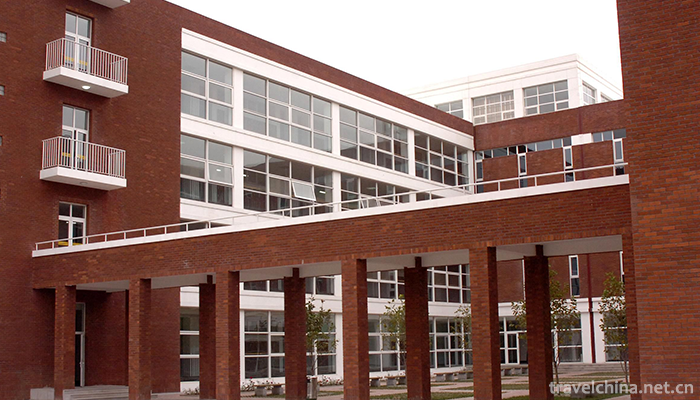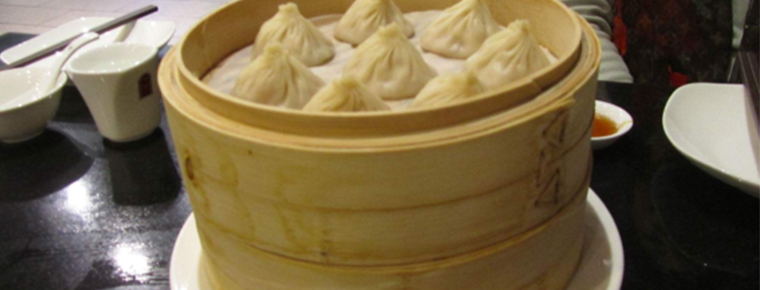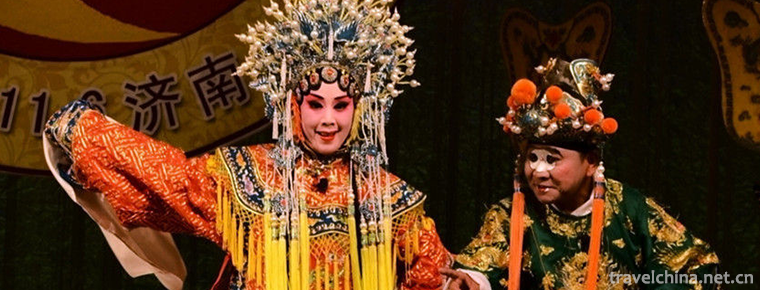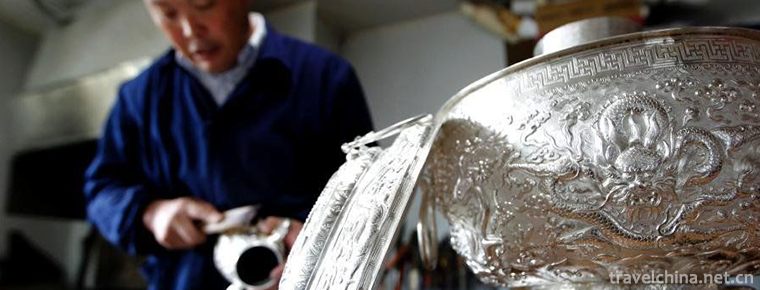Beijing Foreign Studies University
Beijing Foreign Studies University
Beijing Foreign Studies University is located in the West Third Ring Road north of Haidian District, Beijing. On the two sides of the three ring road, there are two East and West campuses, which are directly under the Ministry of education, the first "211 Project" universities, the 985 "dominant disciplines innovation platform" and the first batch of first-class disciplines.
The school is the first foreign language university founded by the Communist Party of China. Its predecessor was the Russian team of the three branch of the Chinese Anti Japanese military and Political University, founded in Yanan in 1941, and later developed into a foreign language school in Yanan. After the founding of new China, the school was led by the Ministry of foreign affairs, renamed Beijing foreign language college in 1954, and merged with the Beijing Russian Institute in 1959 to form a new Beijing Foreign Language Institute. After 1980, it was directly under the leadership of the Ministry of education and officially changed its name to Beijing Foreign Studies University in 1994.
The school has opened 101 foreign languages. The European and Asian-African languages are the largest non-common language base in China, and the first batch of characteristic specialty construction sites of the Ministry of Education. The school has formed a pattern of coordinated development with foreign linguistic and literary disciplines as the main body and arts, law, economics, management and other disciplines. According to the time sequence, the school has set up languages including Russian, English, French, German, Spanish, Polish, Czech, Romanian, Japanese, Arabic, Cambodian, Lao, Sinhala, Malay, Swedish, Portuguese, Hungarian, Albanian, Bulgarian, etc. Swahili, Burmese, Indonesian, Italian, Croatian, Serbian, Hausa, Vietnamese, Thai, Turkish, Korean, Slovak, Finnish, Ukrainian, Dutch, Norwegian, Icelandic, Danish, Greek, Philippine, Hindi, Urdu Hebrew, Persian, Slovenian, Estonian, Latvian, Lithuanian, Irish, Maltese, Bangladesh, Kazakh, Uzbek, Latin, Zulu, Kyrgyz, Pashto, Sanskrit, Bali, Amharic, Nepalese, Soma Ri, Tamil, Turkmen, Catalan, Yoruba, Mongolian, Armenian, Madagascar, Georgian, Azerbaijani, Afrikaan, Macedonian, Tajik, Tswana, Ndebele, Comoros, Creole, Shauna, Tigre Niyah, Belarusian, Maori, Tonga, Samoan, Kurdish, Bislama, Dari, Tetum, Divisi, Fiji, Maori, Luxembourg, Rwandan, Niue, Pikin, Chewa, Cesota, Sango, Tamazigat Language, Javan, Punjabi. Adhering to the spirit of Yan'an and adhering to the national strategy of serving the country, the school has now begun to use official language in establishing diplomatic relations with China.
There are 32 teaching and research institutes in the school. In recent years, the school has established an international graduate school in collaboration with the United Kingdom University of Nottingham, and has established a number of distinctive research institutions such as Xu Guo Zhang's higher Language Institute, Wang Zuoliang Institute of higher studies of foreign literature, higher research Institute of regional and global governance, higher Research Institute of Comparative Civilization and human communication, etc., vigorously promoting the reform of personnel training mode, and establishing the North foreign college, international organization college and International Education Institute. The school has the key research base of Humanities and social sciences of the Ministry of Education: the center of Chinese foreign language and education research, the State Language Research Center: the national language capacity development research center, the key research base of Beijing philosophy and Social Sciences: Beijing cultural exchange research base, and so on. 4 Ministry of education regional and national research and breeding base (central and Eastern Europe research center, Japan Research Center, British research center, Canadian research center) and 37 Ministry of education record country and regional research center. The 3 Ministry of education's humanities and Communication Research Center: China Indonesia cultural exchange research center, Sino French humanities exchange research center, and Sino German cultural exchange research center. The school has published four national core journals, namely, "foreign language teaching and research", "foreign literature", "International Forum" and "International Sinology". It has published "Chinese Russian teaching", "English learning", "Russian learning", "German Studies in humanities", "French national and regional studies", "international Chinese education", "regional and global development", "juvenile legal education", "Applied Linguistics in China", "frontier of foreign language education research" and other publications. The school has the largest publishing base for foreign language books, audiovisual and electronic products in the country: foreign language teaching and Research Press.
The school offers 121 undergraduate courses, of which 45 are the only professional spots in the country. There are 4 key national disciplines (including training subjects) and 7 key disciplines in Beijing. There are 2 PhD candidates in the first level discipline (foreign language and literature, management science and Engineering), 11 master's degree programs in the first level discipline (law, politics, Marx doctrine, applied economics, Chinese language and literature, foreign language and literature, journalism and communication, management science and engineering, Business Administration, education, world history), 8 master's degree programs (finance, international business, Chinese international education, translation, journalism and communication, law, accounting, MBA), covering six disciplines, including literature, economics, management, law, pedagogy, and history. In the fourth round of disciplinary evaluation results in 2017, the first grade discipline of foreign language and literature was rated A+, ranking first in the country. In 2018, the "QS world university discipline ranking" was released, and the 2 disciplines of school linguistics and modern language once again entered the top 100 of the world, ranking first in the same schools in China. There are 5470 undergraduate students, 2800 graduate students (Masters and doctorate) and 1404 overseas students.
The school's innovative talent management mechanism has comprehensively promoted the level of teaching staff. There are 1256 in-service teaching staff and 191 foreign teachers from 55 countries and regions. The school has young and middle-aged experts with outstanding contributions from the state, the leading talents of philosophy and Social Sciences in the national "ten thousand person plan", the national "ten thousand person plan" teaching master, the Yangtze River scholar Professor, the national million talents project, the national "four batch" talents, the young "Yangtze River Scholar" and other high level teachers. More than 90% of the teachers have overseas learning experience. The team of teachers from China foreign language and Education Research Center was selected as the first batch of "National University Huang Da Nian type teacher team".
The school adheres to the idea of internationalized education with high end and overall promotion. It exchanges with 313 universities and academic institutions in 91 countries and regions in the world. It has established substantive cooperation with other famous universities abroad, such as University of Nottingham, University of London, Afro, the French national Oriental Language and Culture Institute, Russia's mocor national language university, University of Gottingen of Germany, Rome University of Italy, Hungary Lorand Eotvos University, and Poland yaccalong University. Confucius college, Belgian Brussels Confucius college, Austria Rome University of Vienna Kong Zixue school, Poland Krakow Confucius college, Belgium Belgian university, University of Hawaii, Lorand Eotvos University, Lorand Eotvos University, School of Lorand Eotvos University, Hungarian Lorand Eotvos University, University of science and technology, University of Korea, foreign language university, Moscow Institute of foreign languages, School of Spanish, Institute of science and technology, Moscow University of national languages, School of education, United Arab Emirates ZAD University, School of English, London School of science, University of science and technology, School of science and technology, University of science and technology, University of Colombo, Sri Lanka, and ESCP School of business. The school has hosted 23 overseas Confucius institutes, located in 18 countries in Asia, Europe and the United States, ranking first in the domestic universities, including Nuremberg, Germany, Erlangen.
There are nearly 144 books in Chinese and foreign languages in the school library, over 222 books in Chinese and foreign languages, 1123 in Chinese and foreign languages, and 97 in Chinese and foreign languages. In recent years, with the development of discipline construction, the collection of books in politics, law, diplomacy, economy, news and management has gradually formed a collection system. Schools continue to strengthen information technology and form an information framework of "open, interconnected, intelligent, innovative and integrated", and develop a number of landmark achievements, such as multilingual websites, digital north and outside, data center software platforms, etc. Among them, the multilingual website project was launched in 2015 to support 50 foreign languages. In 2018, the Ministry of Education authorized the Ministry of education to promote the construction of teachers' teams.
In the course of long-term schooling, Beijing Foreign Studies University has been closely linked to the needs of national strategic development, and has formed the "outside, special and fine" school running concept and the spirit of motto of "inclusive, knowledgeable and committed". It has become an important base for training high-quality talents in diplomacy, translation, trade, news, law and finance. According to incomplete statistics, among the alumni graduated from Beijing Foreign Studies University, there were more than 400 ambassadors to serve as ambassadors, more than 1000 as counselors, and Beijing Foreign Studies University therefore won the reputation of "cradle of the Republic diplomats".
At present, the school has fully implemented Xi Jinping's new socialist ideology with Chinese characteristics and the nineteen spirits of the party. Adhering to tradition, striving for excellence and striving for perfection, it is committed to training the country's urgent needs, social responsibility, innovative spirit and practical ability. It has Chinese, international, speculative and cross-cultural abilities of compound, complex and high-level talents, and speeds up the pace of building Chinese characteristics and world-class foreign language universities.
(the statistical time point is May 31, 2019).


Beijing Foreign Studies University
-
Mountain Lushan
Mount Lu, also known as Kuang Shan and Kuang Lu, is located in Mount Lu City, Jiujiang, Jiangxi province. It is located between the east longitude 115 degrees 52 '- 116 degrees 8'
Views: 218 Time 2018-10-30 -
Pumpkin rice gruel
cut Pumpkin Peel into thin slices and rinse with millet. Put some water in the pot, put water into pumpkin millet and boil it in a big heat.
Views: 389 Time 2018-11-02 -
Zhongyuan Great Buddha Scenic Area
The Central Plains Buddha, located in Shangtang Foquan Temple, Zhaocun Township, Lushan County, Pingdingshan City, Henan Province
Views: 272 Time 2018-12-09 -
Zepkin Lake Yang National Forest Park
Zepujin Lake Poplar National Forest Park is located 36 kilometers southwest of Zepu County in Yasidun Forest Farm. It is located on the upper edge of the Yerqiang River alluvial fan
Views: 178 Time 2018-12-12 -
Scenic Spot of the Source of the Yellow River
Kariqu, one of the sources of the Yellow River, started with five springs, and Maqu, the other with only one springs. This is the source area of the Yellow River. Tourists here can't imagine that the
Views: 185 Time 2019-01-18 -
Zhangye National Wetland Park
Zhangye National Wetland Park is located in the northern suburbs of Ganzhou District, Zhangye City, which is closely linked with the urban area. Wetland area of 62,000 mu, the main body is located in
Views: 182 Time 2019-03-16 -
Fish Swallow in Bazhen Fresh Soup
Ingredients: Six or two fish swallows are served well. Lentinus edodes, crab willow, Jinhua ham, clam, shrimp
Views: 212 Time 2019-03-27 -
Traditional pasta making techniques
Traditional pasta making technology was listed in the second batch of national intangible cultural heritage list in 2008.
Views: 115 Time 2019-04-20 -
Shangdong clapper opera
Shandong Bangzi is a traditional local opera popular in Southwest Shandong and Central Shandong. Also known as "high-profile Bangzi", short for "high-profile" or "high-profile
Views: 206 Time 2019-06-13 -
Silver and Copper Ware Making and Gold smelting Techniques
Silver and bronze wares production and gold mincing skills, local traditional skills in Huangzhong County, Qinghai Province, one of the national intangible cultural heritage.
Views: 219 Time 2019-07-13 -
Capital Normal University
Capital Normal University (Capital Normal University), World class discipline construction universities , Ministry of Education of the People's Republic of China And Beijing Municipal People's Governm
Views: 175 Time 2019-09-22 -
Leshan specialty food
Leshan bean curd is one of the special snacks in Leshan, Sichuan Province. The bean curd has deep red pepper and green coriander or celery.
Views: 95 Time 2020-12-17











